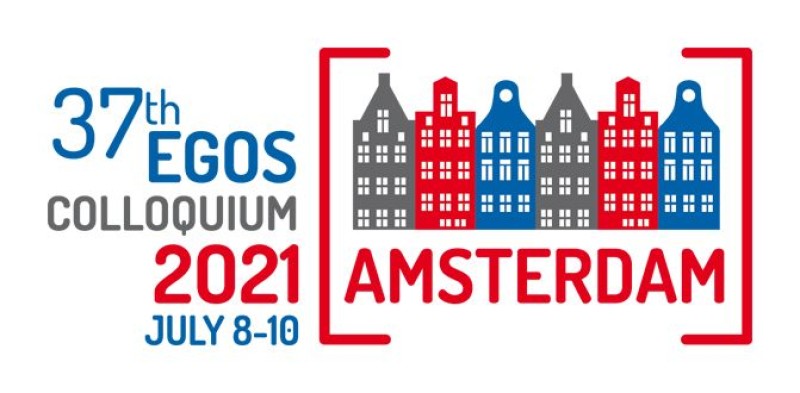Sub-theme 29: Entrepreneurship as Networking: Dynamics and Mechanisms of Organizing Social Networks
Call for Papers
This sub-theme focuses on the community of researchers interested in social networks and social capital in entrepreneurial
processes. We encourage researchers to show how entrepreneurs depend on and organize their social networks, by especially
addressing dynamics and mechanisms of these processes.
Increasingly, entrepreneurship is understood as a
social-interactive and action-oriented process, and one of the cornerstones of this thinking are social network and capital
theories, which are becoming foundational theories of entrepreneurship (Gedajlovic et al., 2013). Viewing entrepreneurship
as networking provides an integrated account in which the entrepreneur’s organizing agency is combined with an emphasis on
the social environment. The importance of social relations and the associated interactions between entrepreneurs and their
environment gives insight into key entrepreneurial processes.
These key processes involve multiple mechanisms.
First, mechanisms can be related to accessing established and new knowledge through social relationships, for instance
to imagine and enact entrepreneurial opportunities. A second mechanism relates to acquiring resources, both tangible
as well as intangible. A third mechanism deals with making networks more redundant, stable and productive, by embedding
relationships. Fourth, through diversifying their ties and achieving brokering positions, entrepreneurs can enhance
their position in a network and benefit from the advantages of a good position. Finally, the fifth set of mechanisms
deals with networking as essential to legitimize entrepreneurial endeavours. As knowledge around entrepreneur’s social networks
is mounting up (e.g., Hoang & Yi, 2015; Stam et al., 2014), the current quest is to further understand the dynamics and
detailed mechanisms, including their contextual conditions, of social networking by entrepreneurs.
Studies
on social networks have often focused on the structural-relational side of networks, and as a result the content and meaning
provided by ties is sometimes assumed rather than directly conceptualized and operationalized. Therefore, this sub-theme explicitly
calls for attention for content and meaning established with and provided by network connections (cf. Fuhse, 2009). Moreover,
social networks are a great way to become more inclusive; one of the prime ways in which for instance refugees integrate is
through their social networks. Thus, it is timely to address how entrepreneurial networking leads to more inclusive societies
(or not).
Yet, social networking is not just a positive process. All social processes have positive and negative
aspects, even though often these dark sides are not explicitly addressed (Klyver et al., 2011). Therefore, this sub-theme
wants to explore some of these dark aspects. How can entrepreneurial networking have negative effects on individuals, firms,
environment as well as on societies? For instance, dense, clique networks such as suggested in effectuation theory (Kerr &
Coviello, 2020) have potentially a negative effect on idea diversity. On the society level, networks building on reciprocity
may facilitate corruption and bear a disintegrative effect on the broader society. Through addressing entrepreneurship as
networking, with an explicit focus on dynamics and mechanisms, thus this sub-theme features intriguing topics related to network
dynamics, meaning and mechanisms that have a bearing on inclusiveness of firms and societies.
Suggested contributions:
How are entrepreneurial networks established? What are tactics and strategies that lead to efficient networks (cf. Kaandorp et al., 2019)?
How do different network mechanisms interact in entrepreneurial processes? Are there dominant network mechanisms in different phases of the process or for specific types of organizations (e.g., Elfring & Hulsink, 2007)?
What is the dark side of networking at individual, firm, environment and society level: when do mechanisms turn into negative effects?
What is the interaction of network and networking (e.g., structure and agency)?
Networking activities potentially affect opportunity development, resource mobilization, and legitimacy. How do entrepreneurs organize their activities – and influence underlying mechanisms – aimed at different outcomes?
How is meaning (re)constructed in entrepreneur’s networks and how is this related to an entrepreneurs’ own meaning-making and imaginative processes?
How can entrepreneurial networking lead to more inclusive societies (or not)?
How, through social interactions and networking, do disadvantaged people with a ‘poor’ starting point change their network conditions and escape their potential structural lock-in?
References
- Elfring, T., & Hulsink, W. (2007): “Networking by entrepreneurs: Patterns of tie formation in emerging organizations.” Organization Studies, 28 (12), 1849–1872.
- Fuhse, J.A. (2009): “The meaning structure of social networks.” Sociological Theory, 27 (1), 51–73.
- Gedajlovic, E., Honig, B., Moore, C.B., Payne, G.T., & Wright, M. (2013): “Social capital and entrepreneurship: A schema and research agenda.” Entrepreneurship Theory and Practice, 37 (3), 455–478.
- Hoang, H., & Yi, A. (2015): “Network-based research in entrepreneurship: A decade in review.” Foundations and Trends in Entrepreneurship, 11 (1), 1–54.
- Kaandorp, M., van Burg, E., & Karlsson, T. (2020): “Initial networking processes of student entrepreneurs: The role of action and evaluation.” Entrepreneurship Theory and Practice, 44 (3), 527–556.
- Kerr, J., & Coviello, N. (2020): “Weaving network theory into effectuation: A multi-level reconceptualization of effectual dynamics.” Journal of Business Venturing, 35 (2), 105937.
- Klyver, K., Evald, M.R., & Hindle, K. (2011): “Social networks and new venture creation: The dark side of networks.” In: K. Hindle & K. Klyver (eds.): Handbook of Research on New Venture Creation. Cheltenham: Edward Elgar, 145–159.
- Stam, W., Arzlanian, S., & Elfring, T. (2014): “Social capital of entrepreneurs and small firm performance: A meta-analysis of contextual and methodological moderators.” Journal of Business Venturing, 29 (1), 152–173.


